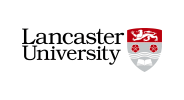© Pint of Science, 2025. All rights reserved.
The brain is similar to a sponge, capable of absorbing stories. Neuronal structures have evolved while always maintaining the fundamental assumption of cause and effect. The consequence of an action is its expected result.
Join us for an evening of talks exploring the capability of your brain.
Join us for an evening of talks exploring the capability of your brain.
Taking a hands-on approach: How handedness impacts our perception.
Rachael Taylor
(PhD student, Lancaster University)
Our world offers us countless opportunities for interaction, a concept known as ‘affordances’. To successfully interact with affordances, we must accurately perceive the relationship between our bodies and the world around us. However, the perception of our bodies is not always true to reality – that is, we can experience biases towards certain parts of our body. This talk will address how we explore affordance perception using virtual reality, focusing on how right-handers experience the world through the lens of right-handedness.
“Look, a blicket!” How do young children learn the meanings of unfamiliar words?
Dr Calum Hartley
(Senior Lecturer, Lancaster University)
Learning language is one of the most important and celebrated milestones of child development. Understanding words underpins our ability to communicate and navigate the social world. However, word learning is deceptively complex – young children hear thousands of words per day and their world is full of unfamiliar things. So, how do they figure out which words refer to which objects? And is word learning simply a case of identifying meaning? In this presentation, I’ll explain how developmental psychology has answered these questions.
The Neuroscience of Speech and Action
NoSA lab
(Neuroscience of Speech and Action Laboratory)
The Neuroscience of Speech and Action (NoSA) Lab investigates research questions surrounding how speech, action, and cognition are represented in the brain, and how they change as a function of healthy ageing. To answer these questions, we use a variety of methods, including brain stimulation and brain imaging, as well as by measuring behaviour. Researchers from the NoSA lab will discuss their respective projects, and the importance of furthering our understanding of how our brains process the sensory information that we encounter in our dynamic everyday environment.
The unconscious mind
Tom Beesley
(Senior Lecturer at Lancaster University)
Across many fields in psychology, there has been a persistent suggestion that our behaviour is influenced by powerful unconscious processes. In this talk, I will focus on the field of human learning. A dominant theory suggests that humans have two learning systems: one system of learning that is conscious, rational, and effortful, which results in consciously accessible knowledge; the second system is thought to be reflexive, automatic, and the knowledge is acquired unconsciously. I will explore some of the weird and wonderful ways that people have tested this.
Map data © OpenStreetMap contributors.
